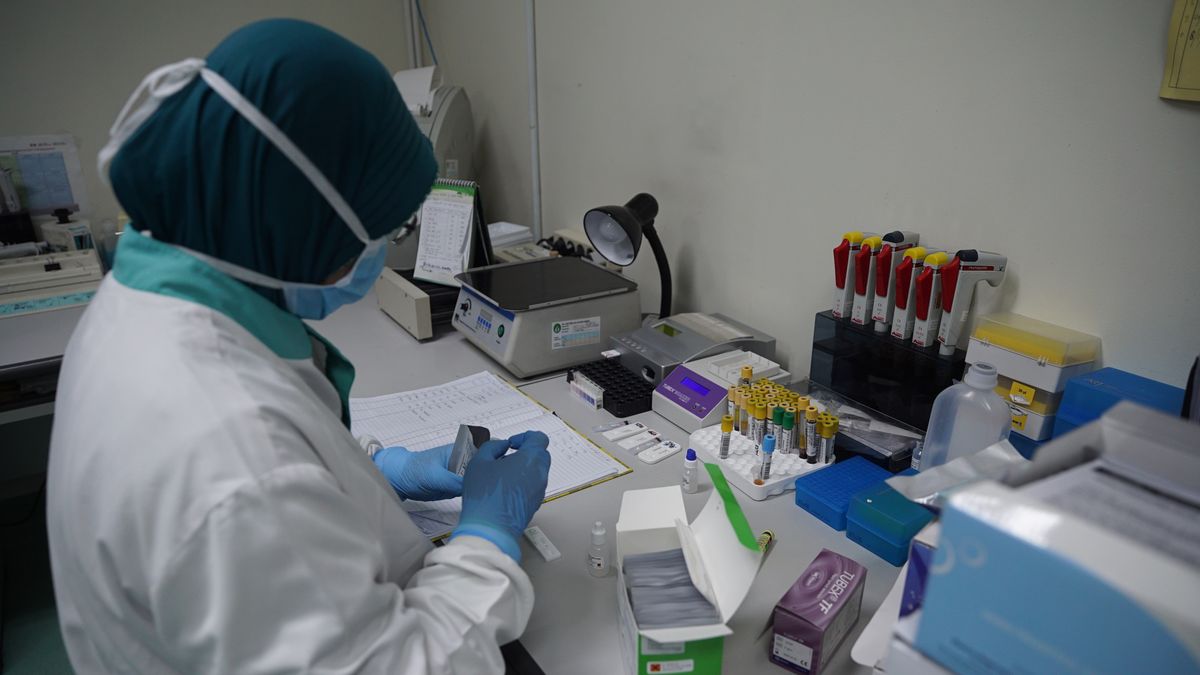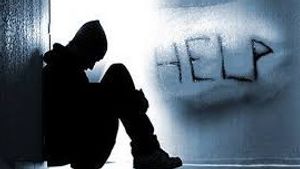JAKARTA - Nearly 20 thousand people carry out COVID-19 tests in South Korea every day. This number is said to be the largest in the world. Despite having to test tens of thousands of people, it didn't take long for the authorities and the public to find out the results of the test.
The reason is that the samples that have been taken from those suspected of having COVID-19 are immediately sent to the laboratory closest to the sampling location. Furthermore, laboratory workers will work in turns for 24 hours without stopping to process the samples they have obtained.
Reporting from BBC Indonesia, if limiting the spread of COVID-19 is war, then this laboratory is the front line of defense for South Korea. The state authorities also understand this. Because, currently South Korea has created 96 government-owned and private laboratory networks to test the presence of the virus in the community.
According to local health officials, the large number of laboratories and the speed with which staff can process samples of people suspected of having COVID-19 are needed to save people from the virus. This is evidenced by the death rate in South Korea due to the virus which is only 0.7 percent.
Even though based on the World Health Organization (WHO) the death rate due to COVID-19 has reached 3.4 percent.
Learn from the spread of MERS
How to fight COVID-19, learn from their experiences when experiencing Middle East Respiratory Syndrome (Mers) several years ago. This was conveyed by the Chairman of the Drug Laboratory Foundation, Professor Gye Cheol Kwon.
According to Kwon, when the MERS outbreak occurred, 36 people died in South Korea. This incident, made the government review its approach to infectious diseases. The Centers for Disease Control in the country have even set up a special division to prepare themselves if such cases occur and are finally tested at this time.
"I think early detection of patients with accurate testing followed by isolation can lower the death rate and prevent the virus from spreading. Learning from the past and preparing systems in advance are probably the main strengths to overcome this new type of disaster," said Kwon.
This report from BBC Indonesia also notes that there is no shortage of test kits used in South Korea. Currently, there are four companies that have received government permission to make them. So, currently South Korea is able to test 140,000 samples each week.
The accuracy of this test tool, said Kwon, reaches 98 percent. So, if you reflect on their ability to test so many people at the same time, it seems natural that South Korea has become a role model for other countries that are currently fighting against the COVID-19 virus.
Even so, this report also notes that South Korea is actually imperfect in handling the virus that originated in mainland China. At least two patients died while waiting for hospital beds in Daegu. This city is known to be the worst city in the spread of the virus.
The reason was that at that time South Korea quarantined all people infected with the virus in hospitals. However, according to the infectious disease specialist from the Korea National Medical Center, Kim Yeon-Jae, doctors in the country are now finding a new, more effective method. Patients with milder symptoms can be treated at home. So, the hospital can be occupied by those who need faster treatment.
"We cannot quarantine and treat all patients. Those with mild symptoms must stay at home and receive treatment," said Kim.
"We have to change our ultimate goal, which is to reduce the death rate. So other countries like Italy, which have a lot of patients, have to change their strategy too."
In addition, the South Korean authorities have also prepared a testing site or a unloading laboratory that can be installed directly wherever the virus spreads.
In dealing with this virus, Korea is also known not to carry out area closures or lockdowns. There are also road blockades and restrictions on movement. Because tracing, testing, and handling are the main keys.
In addition, they are now also placing body temperature detection cameras at the entrances of large buildings complete with hand sanitizer. In fact, there are people who wear costumes at subway entrances to remind people to wash their hands immediately.
The English, Chinese, Japanese, Arabic, and French versions are automatically generated by the AI. So there may still be inaccuracies in translating, please always see Indonesian as our main language. (system supported by DigitalSiber.id)












